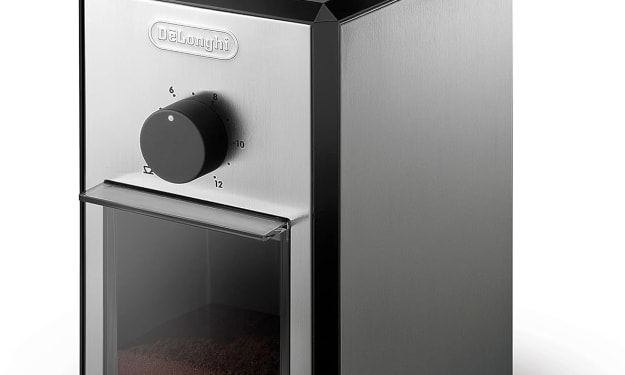
Terms like the Great resignation and Quiet Quitting, since the time of the Covid pandemic, have come into popular usage to explain the rise of many 9-5ers leaving the workforce voluntarily, or setting work standards quite different from the norm.
According to statistics, in the U.S. alone in 2021, about 3.9 million people quit their jobs every single month, with November being the highest month with about 4.5 million people quitting their jobs.
But by March 2022 about 8.5 million people quit their jobs, making one article declare that almost half of the U.S. population of employees are jobseekers.
In Europe, the U.K. had the highest number of resignations taking place in the second quarter of 2022 with about 442,000 resignations. On a whole in the EU area, job vacancies increased by up to 3.1% in the second quarter of 2022.
2023 is on its way into the seventh month and there could be more shifts in the job market, with voluntary resignation figures increasing. As it appears, the appeal of the 9-5 hustle is fast disappearing or is slowing down.
The Great Resignation showed that.
But then Quiet Quitting came in. This is a process where employees do not outright quit their jobs, but employ a gradual detachment towards their work responsibilities.
And so their motivation levels decline and they are not as ambitious about seeking higher positions as they used to.
But why is this happening?
Voluntary resignation or Quiet Quitting is all happening at a time when people are beginning to fill their lives with other options. It's all about not digging your claws too deep into the job culture anymore, where you work and think of only working, thereby giving up a better part of your life.
There's more to life than work and this is the thinking that was spurred on by the 2020 Pandemic and the consequent government lockdown measures.
This ushered in a shift towards more independent alternatives forms of income generation that could guarantee fewer work hours, and more free time.
This is what more and more people are going for. On the one hand this would require you setting up your own independent business where you have among other things,
Freedom and independence: Freedom comes by being your own boss and not working for someone else. This translates into independence which you gain working for yourself.
You're in control: You're the boss, so you make the decisions and are practically in control as you call the shots. You practically oversee every aspect of the business you set up and if you need help you can hire others or outsource some tasks.
Flexibility: By being your own boss, you have the ability to create your own schedule, set your own hours, and take time off when you need it. You can even delegate someone to stand in for you to oversee things while you're vacationing in some far off remote land.
But on the other hand, even if you don't want to be your own boss but still want to work for someone else, you'd still want to carry out your perceived work-life balance plans.
And this means doing a job that guarantees better pay but less work hours in the office and more time at home. After all, no one can deny the fact that, whether you work or play, sleep or party, when it's time to pay the rent/mortgage and bills, you can't escape it.
Neither of us can if we still want a roof over our heads.
Having said that, it is important to understand the mindset of those who decide out of the blues to voluntarily resign, or want to change their work-life balance.
They can't be wrong about what they want because behind their thinking, and eventually their actions, lies a moment of assessing the true benefits of voluntary resignation.
Here is where they weigh the pros and cons of making this a plan they'll most eagerly carry out to the letter. Definitely to apply such a plan to your life means having options that will fill in the gap should things take a downward turn.
The 9-5 hustle becomes less appealing
The 9-5 work culture seems to be a dying one since people aren't as keen as they were in the past, to put in all the grind for the sake of putting food on the table.
The ever changing economic situation the world faces with increase gas prices, high inflation rates and banks collapsing, are not helping people. This is because at the end of the day, while prices of consumer goods keep increasing, there is not a corresponding increase in incomes.
People's buying power has less and less value and so why grind harder if situation doesn't change? An interesting survey carried out by Resume Builder highlighted the fact that,
Twenty-one percent of workers are ‘quiet quitting,’ choosing to put in only the bare minimum and just doing what they are paid to do.
Additionally, 5% say they actually do less than what’s required of them.
Putting in more than what you are paid is not something that most people are willing to do any longer. And so they simply work the necessary hours and go home. In fact in the same survey, the question,
Why don't you want to go over and beyond what your employer pays you, was asked.
About 50% of respondents said they don't want to work more hours for no additional pay. Another 45% said it would compromise their mental health. While 40% said working extra hours would compromise their work-life balance.
The shifting mindset
The shifting mindset of workers offers a deep perspective into what the future of the job market will look like. What factors will determine who will get employed? What factors will not work in favor of a would-be employee?
For one, employers will need to spell out clearly the ideal candidate they are looking. On the other hand would-be employees may need to make demands that their would-be employers can meet.
Companies are businesses set up to make profit through productivity. They compete with other companies in the same niche. So if a majority of workers are quiet-quitting, and thereby putting in the bare minimum or even less, how will that company stay competitive?
Working the bare minimum means that workers may physically show up at work but will not put in the commitment and enthusiasm necessary to get the job done.
If a companies future is staked upon such a work force then productivity levels will surely decrease. To offset this trend, employers may need to provide incentives to workers.
Data from the same survey showed that more than 75% quiet-quitters would be motivated to work harder if they were paid more money. Another 48% said they would work more if they had better paid time off, while another 40% said with better health incentives they could work more.
This could usher in a win-win situation for both employer and employee. It could also help lessen the shifting mindset towards quiet-quitting. The pandemic shut down society as government lockdown measures made that possible.
In such a scenario life had to continue as people still had to put food on the table. Also people still had to somehow find a way to bring in money. The pandemic made it possible for people to seek other opportunities outside of the 9-5 hustle.
It became somewhat redundant as people realized that nothing is certain anymore, not even the 9-5 grind.
About the Creator
sol
Someone who cares about others and ready to help in considerable ways. i write for fun and don't consider it a hobby- it's just a way of telling myself that I can do this.






Comments
There are no comments for this story
Be the first to respond and start the conversation.